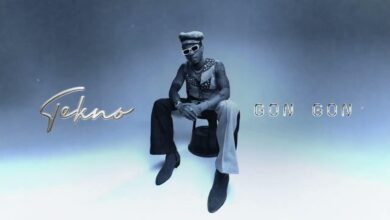Zulu Tribe of South Africa

The Zulu tribe is most well-known for its basketry and beading. They have also been credited with some figural sculpture that is dubious.
The intricate Zulu architecture has been widely researched, as has Zulu attire or fashion.
History of the Zulu Tribe
The AmaZulu people hold the view that they are the direct ancestors of the patriarch Zulu, who was born in the Congo Basin to a Nguni chief.
The Zulu people moved southward in the 16th century to their current position in South Africa (Natal Province), absorbing many of the San people’s traditions, including the region’s well-known clicking noises.
The Zulu people expanded their land holdings from 100 square miles to 11,500 under the reign of King Shaka (1816–1828), becoming the most powerful military force in southern Africa.
Dingaan, who hesitantly signed treaties with English invaders, came after Shaka. Mpande succeeded as King. He gave the British a lot of power over his people.
The Zulu had had enough of the English invasion by the time he passed away in 1872.
Despite six years of fruitless attempts by Cetewayo, who succeeded Mpande, to prevent a conflict with the British, war broke out in 1879. The British force finally won despite the Zulu having some initial success.
Cetewayo was deported to England in less than six months, and the Zulu country was partitioned in a way that benefited the British.
Chief Bombatha led the final Zulu revolt against European dominance, which failed in 1906.
In recent years, Chief Buthelezi has simultaneously served as the political head of the Zulu people as well as the leader of the Inkatha Freedom Party.
He has led the opposition to apartheid and the ANC and demanded a voice for his three million+ strong people.
This has changed since 1994, when corruption and ineffective leadership essentially made the IFP a weak regional opposition.

Also Read: Shaka Zulu’ South Africa’s Greatest Army General
Economy of the Zulu Africa
Rural Zulu farmers herd animals and grow vegetables and grains for sustenance.
While the majority, if not all, of the planting and harvesting, is done by the women, the cows, which are grazed in the open countryside, are essentially the responsibility of the men and herd boys.
Additionally, the women are the house’s proprietors and have much financial power inside the family.
Zulu, and in fact all Africans, were restricted to labor-intensive tasks and domestic chores in South Africa’s metropolitan regions unless they moved there for work or school.
Tourism of the Zulu Tribe
The corporate sector and the government have come to the realization that the growth of tourism is a crucial weapon for generating employment and bringing in quick foreign cash to the nation.
Africa’s most popular safari and vacation destination is presently South Africa.
Also Read: A Biography about Nelson Mandela
Political systems
The Zulu history demonstrates that the leader or chief is given authority depending on his ancestry. He is a key player in the internal administration of the Zulu country and serves as a national spokesperson for his people.
Even though the Zulu is under formal South African sovereignty, they frequently speak out against government policy.
The country is still deeply rooted in de facto racism (black racism/tribalism), now even more so (2015) than during the Apartheid years, despite the fact that Apartheid as an institution was beginning to fall apart by 1994, and that extreme “Black Economic Empowerment” and “anti-white” policies had replaced the old “Apartheid.”
After 1994, a high crime rate, a weak, corrupt administration, and black prejudice succeeded apartheid.
The ANC-led government has essentially undone all of Nelson Mandela’s forward-thinking efforts for South Africa with his passing. Jacob Zuma, the president at the moment, is working to make South Africa a one-party dictatorship.
Also Read: The Zulu Shield’s History
Religion
The Zulu religion holds that a creator god named Nkulunkulu who is above interfering in ordinary human matters is real.
Only by using divination techniques to invoke the ancestors (AmaDlozi), is it feasible to make an appeal to the spirit realm.
The diviner, who is nearly invariably a woman, thus plays a significant role in Zulu daily life.
All terrible things, including death, are said to be caused by wicked magic or grieved spirits. The source of any catastrophe is seldom thought to be natural.
Cleanliness is a significant component of the Zulu religion. Food was served on separate utensils and plates, and bathing frequently occurred up to three times each day.
It was difficult for Christianity to spread among the Zulus, and when it did, it did so in a mutually beneficial way. The Zulu messiah, Isaiah Shambe, preached a kind of Christianity that included old traditions.





